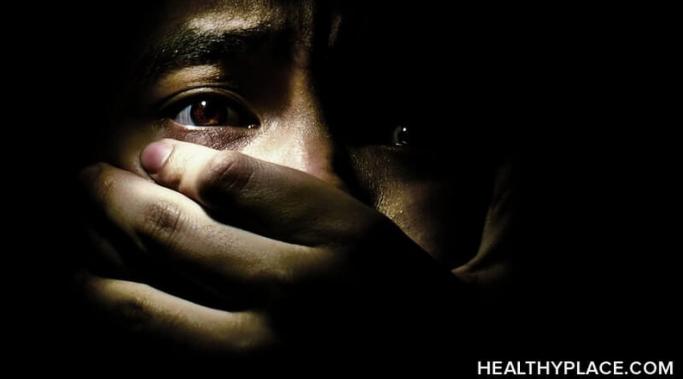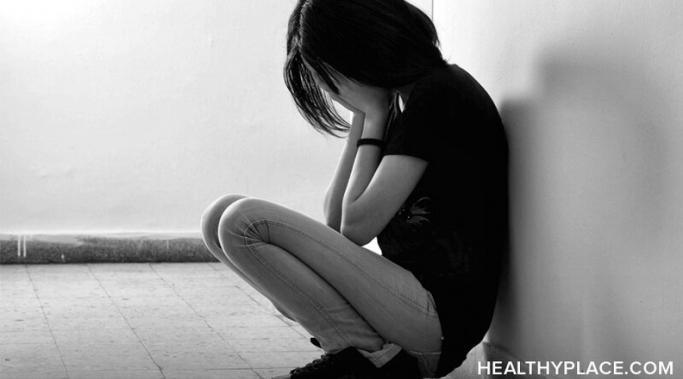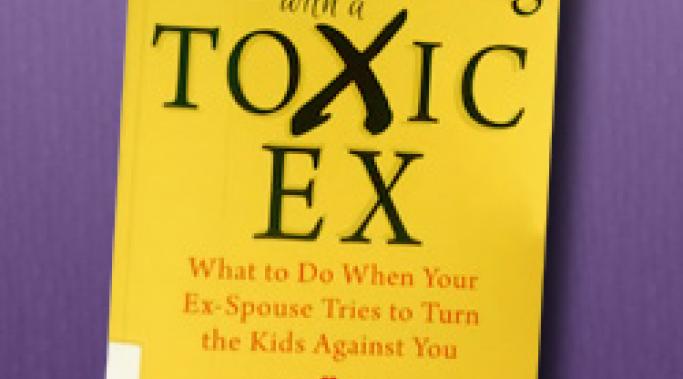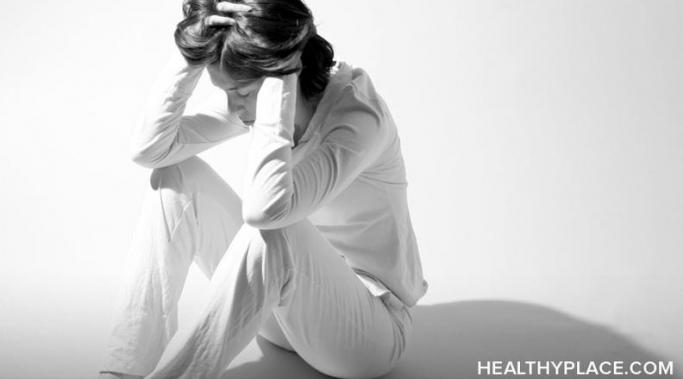If you have read about domestic violence, then know that healing from abuse can be as difficult as living in it. You've read that leaving abusive relationships is not easy and can be downright dangerous. You read about the cycle of abuse and the power and control wheel. You've also come to understand that whether you believe you are abused or if you continue to question if your partner abuses you, your relationship is not a healthy one. Hopefully, at the very least, you realize the problem in your relationship cannot be entirely your fault (relationships take two, you know) and your mental disorders or problems like codependency explain only a fraction of the story.
Healing After Abuse
The trauma triggers discussed in the last post (How To Handle Trauma Triggers Caused By Domestic Abuse) typically result in anxiety or panic attacks. You can often find a cause for those types of trauma triggers and there is a way to handle the anxiety they cause at the time they occur.
On the other hand, hidden trauma triggers are situations, relationships or events that subconsciously remind an abuse survivor of the abuse they experienced and cause the survivor to feel or act out in ways they did during the abusive relationship for several days or longer.
Many people living in abuse and people who have left their abusers experience trauma triggers related to what they saw, heard, smelled, touched or tasted during abusive attacks. The trauma triggers are different for everyone, but fortunately, we can handle trauma triggers similarly.
In the following video, I say to you what I needed to remember today. I am less than no one. I have value. I am chock full of potential and promise. So are you.
To help me remember I am worthy, I have to remember the vocabulary of abuse. The vocabulary of abuse is the words and techniques abusers use to keep abuse victims as victims. When I was an abuse victim, I found myself confused: I knew something was wrong, but I couldn't decipher or describe what that something could be (Gaslighting: Designed to Destroy Your Sanity). Before I knew there was a vocabulary of abuse, I was destined to remain an abuse victim .
Have you read the story of Bluebeard? In short, Bluebeard, an abusive predator, marries a naïve girl and gives her all the keys to his castle, but tells her to never use the tiny key with the beautiful scroll top. So, of course, the girl seeks the door the key will open. She unlocks the door and sees the dead bodies of Bluebeard's former wives. In some versions, the girl escapes Bluebeard's wrath and in others she dies.
Initially, I equated the story of Bluebeard's wife with myself as a formerly abused woman. After reading Women Who Run With the Wolves by Clarissa Pinkola Estes, Ph.D., I agree with the author that Bluebeard is the voice in our heads that traps us in abusive relationships (and many other foul situations).
Description of A "Toxic Ex"
A toxic ex is any co-parent who creates a loyalty conflict for your child(ren). Loyalty conflicts occur when your child believes they must choose one parent over the other.
A toxic ex will do things like:
Restrict or hinder communication and/or contact between you and your children.
Talk badly about you to your children.
Erase and Replace You (This phrase comes from Co-parenting with a Toxic Ex and means to ". . . erase you from your child's heart, mind, and memory and install someone else . . .").
Undermine you.
Persuade your kids to not trust you and urge them to betray your trust (the "divide and conquer to maintain control" routine).
In abusive relationships, the devil you know seems better than the devil you don't. We go back and forth over leaving our abusive mate, wobbling between fear of them and fear of the unknown. It's a tricky balancing act, especially when our partner seems to know just when to put on their nice mask. The sweet phases of an abusive relationship add to the confusion and indecision about just what kind of devil we know.
What kind of devil can be so sweet one minute and so nasty the next? And why can they act kind for long stretches and then turn back into monsters over meaningless situations or words? Why do they hurt us? Why do we stay? Will this relationship hurt the children? Can this relationship last? Should I stay to see if it gets better? Should I run and not look back?
Unfortunately, I am incapable of giving you those answers. And honestly, the longer you take contemplating what those answers could be, the longer you'll be stuck with the devil you know.
Surviving abuse feels like a miracle. Over all, surviving my abusive marriage has been a wonderful, empowering experience. However, my recovery from domestic abuse hasn't gone exactly as I thought it would. Some things have been downright crappy. This year, the happiness of surviving abuse is diminishing. The crappy is beginning to outweigh the happy. Surviving abuse is a beautiful accomplishment. Surviving recovery . . . well that's what this story is about.
Denial in abusive relationships is a coping skill abuse victims tend to overuse. I took a trip to Egypt to understand denial during my abusive relationship. You would think that now, after leaving my abuser, I would be on guard for the mighty river. And you would be wrong.
Boy oh boy. Have I ever made some mistakes after leaving my abusive husband. I know that from a distance it looks like I've got my stuff together. I mean, I write this blog and give tips on how to heal from abuse and have a really good grip on the dynamics of abuse.
You would think I'd be off making new kinds of mistakes, having new kinds of adventures and leaving Egypt and it's river to tend to themselves. Ha! Double ha! Oh no - now I'm really laughing at myself . . . hold on a second while I remember what I was talking about . . .
It's well known that your abuser's first order of business was to isolate you, the victim, from family, friends, and anyone else who would offer you support. Once isolated, the aloneness and loneliness can take a toll on both your self-confidence and mental health (depression, social anxiety, addiction and other mental illnesses are associated with isolation).1 So, after living in isolation during the abusive relationship, it is possible that you continue to isolate yourself out of either the habit of isolation or symptoms of mental illness. If you want to end your habit of isolation during abuse recovery, here are some ideas to consider.









